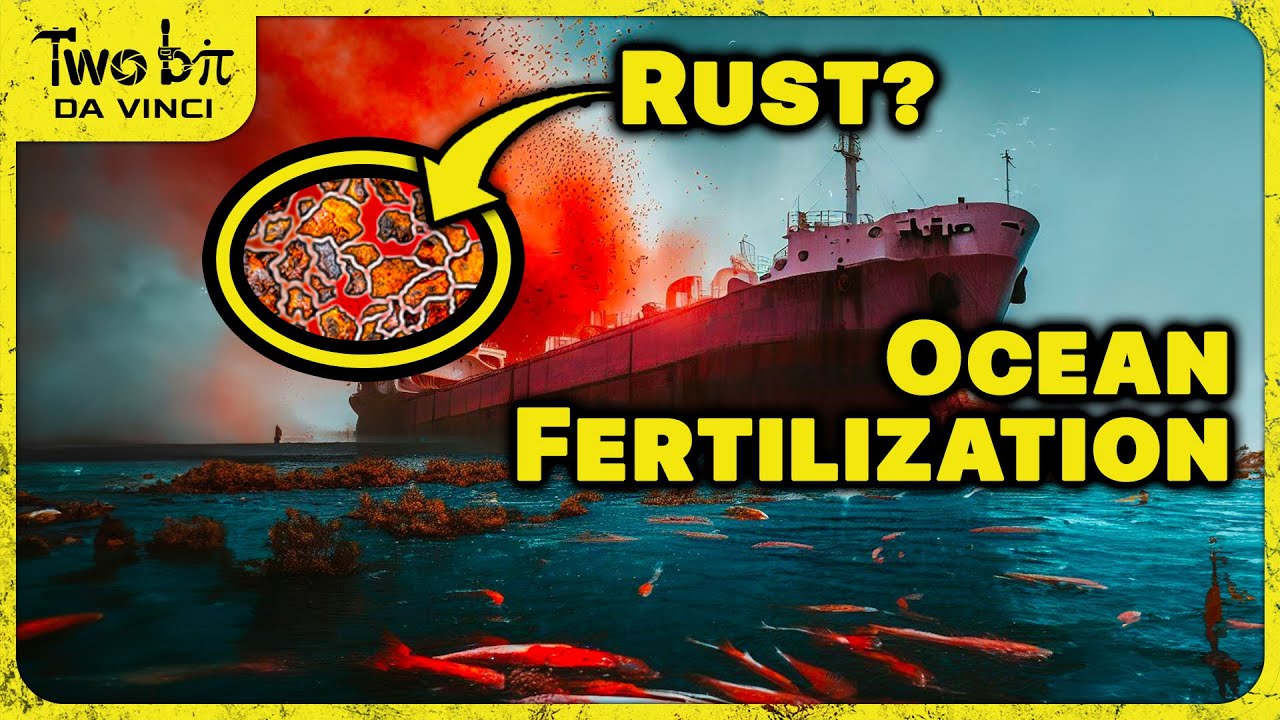The oceans are our unsung heroes for a healthy life on this planet. They don't just cover most of the Earth, they're home to most of its life as well. Plus while trees get most of the credit, most photosynthesis actually happens in our oceans. So restoring coral reefs and healthy ocean biomes is crucial, and scientists think fertilizing the oceans with rust, might just be the panacea we've been looking for. But how on Earth would that work? And is this just another classic example of future unintended consequences? Let's figure this out together.
While I don’t know much about this specific topic, this kind of large-scale and experimental geoengineering is going to be required sooner or later, given that reducing emissions in any substantial way is infeasible in the short term because of money and politics. Ocean fertilization seems like as good an option as any to pursue, or at least study seriously.
One thing I notice about the discussion of geoengineering is the constant mention of “unintended consequences”. Even in this video, which is obviously trying to be informative without taking a specific position, the guy poses the question about whether it would be “hubris” to consider something like this, but doesn’t (in my opinion) give the same weight to the hubris inherent in the current status quo. There are numerous unintended consequences to burning fossil fuels, we actually know what they are, and they are incredibly harmful and dangerous. A lot of them are as bad or worse than the potential consequences of ocean fertilization, and they are guaranteed to happen at massive scale on our current trajectory.
I realize that we don’t want to compound our problems by adding new ones, but using “hubris” as an argument seems a bit silly. We passed the point of hubris a long time ago. At this point, it’s basically about what forms of hubris we want to choose, because it’s clear that we’re not going to choose to sufficiently decrease our impact on our environment or we’d have done it by now. If dumping iron sulphate in the ocean is a crank solution then we can forget it, but doing nothing/working on the margins isn’t really an option anymore.
One procedure I always wanted to do in paramedicine is the field thoracotomy. You turn your patient into a blood eagle to massage their heart manually on the sidewalk. While field CPR has like a 10% chance of working, I don't know how someone that far gone recovers from something so invasive. But you can't kill them more than they killed them so it's just throwing one more piece of shit at the wall to see if anything sticks. Maybe there's the slightest chance of recovery and they are for sure dead otherwise.
Geoengineering is like that to me. We're otherwise dead. The consequences of this would be the same thing that happens from that dying process. May as well give it a try.
That’s a great analogy. If we had another 20 or 30 years worth of runway, we could afford to wring our hands about the consequences of large-scale experimental solutions because the boring incremental steps would be adequate, or at least adequate enough that it’s not worth potentially causing a bigger problem. Now, though, the consequences of inaction are so huge and so awful that the threat of unintended consequences is starting to become moot. Like “oh no, if we experiment with this, we might create a temporary dead zone in one part of the ocean.” The ocean is being fucked up hard right now and this might actually help, could we at least give it a try?


